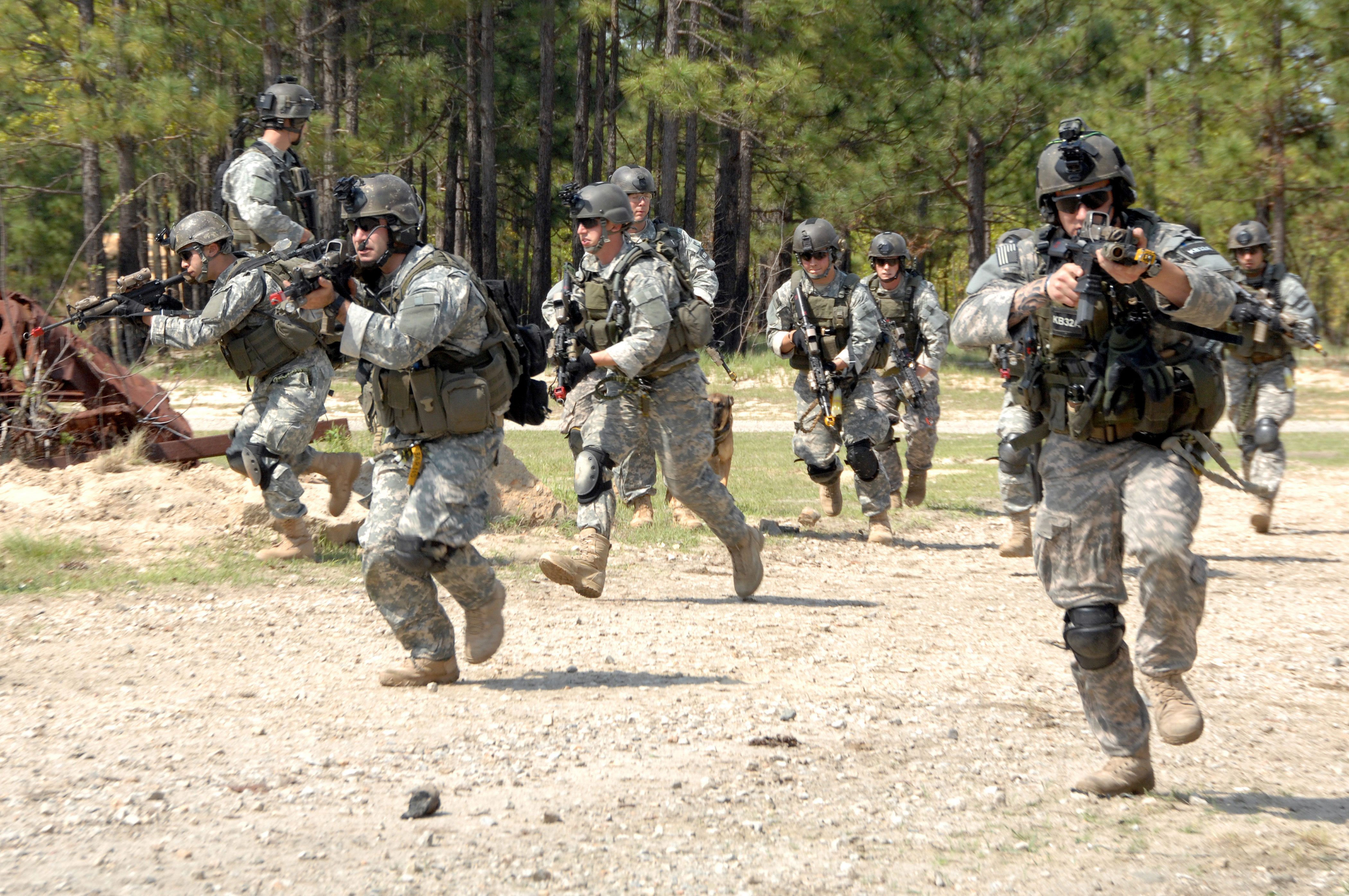Is The Army A Cult - Examining The Claims
The idea that a nation's military might resemble a cult is, so, a thought that catches many people off guard. It feels like a very strong statement, especially when we think about what the military is supposed to do, which is protect and serve. Yet, this question keeps popping up, making people wonder if there's more to it than meets the eye.
This discussion about whether the army is a cult, really, touches on some deep feelings about trust and belonging. It brings up questions about how groups work, what makes people loyal, and where the line is between a strong team and something that might be controlling. People often wonder about the training, the way soldiers act, and the bonds they form.
When someone suggests that the army is a cult, it usually sparks a lot of talk, and that is a good thing. It makes us look closer at how big organizations function and how they shape the people within them. For anyone trying to figure out if joining up is the right path, getting a clearer picture of these points could be pretty helpful.
- Soul Cycle Cancellation Policy
- Beau Marie St Clair
- Mitchell Hope Gay
- Two Wongs Dont Make A White Joke Meaning
- Morgan Fille Lsu
Table of Contents
- Is the Army a Cult - A Look at the Question
- Surface Impressions - Is the Army a Cult?
- What is a Cult - A Basic Idea
- A Personal Story - Mestyanek Young and the Cult(ure) of the Army
- Mestyanek Young - Biographical Details
- How the Military Differs From a Cult - Breaking Down the Differences
- Are There Dangers - The Cult of Militarism and Is the Army a Cult?
- Beyond the Main Branches - Is the Marine Corps a Cult?
Is the Army a Cult - A Look at the Question
The question of whether the military is a cult, you know, is a topic that can cause a bit of a stir. On the surface, it might seem quite odd to even suggest that an organization set up to keep a nation safe could be thought of as a cult. But if you spend some time talking to people, especially those who have served, you might find different points of view. The military has, in the past, shown its ability to keep innocent people safe, which is a very important part of its mission. Someone might say that a group like the National Guard, for instance, is not a cult at all, and that talking to someone who serves in real life could really help you decide what you think.
There are definitely strong feelings on both sides of this discussion. Some people might point to how military groups stick together very tightly, or how they have clear command structures, or even the intense training new members go through, which seems to ask for a lot of dedication. Yet, these similarities, when you look at them closely, do not tell the whole story. The fundamental reasons for existing, the moral guidelines they follow, and the ways they impact people's lives are, in fact, quite different from what you would find in a cult. This makes the whole idea of the army being a cult a complex and, you know, rather controversial one to consider.
Surface Impressions - Is the Army a Cult?
At first glance, the military and cults might, in a way, appear to share some common ground. There is often a very strong sense of group unity, where everyone feels like they are part of something bigger. You also see clear lines of authority, with people at the top giving orders and those below following them. The training process can be quite intense, almost like a period of deep learning, and there is often a call for unwavering loyalty from everyone involved. These things, people might say, are characteristics that you could find in both types of groups.
However, when you dig a little deeper, you start to see that these are just surface similarities. The goals of the military, for example, are usually about protecting a country and its people, while the goals of a cult are often quite different, focusing more on the leader or the group's own specific beliefs. The moral rules they live by and the way they affect the individuals within them are also, in some respects, vastly different. The idea that the military is not isolated from the rest of society, except during very initial training, means that members still connect with the wider world. Sometimes, military members even get to interact with people outside of their group as part of their work, showing that they are still part of the wider community.
What is a Cult - A Basic Idea
To really get a handle on whether the army is a cult, it helps to first understand what a cult actually is. A cult is often thought of as a system of intense religious devotion, often directed toward a particular person or set of ideas. But the meaning can stretch to include groups that use excessive authority and control over their members. For people who have left cults, or for those trying to help others still in them, models like the BITE model can be very useful. This model helps to break down the different ways a group might control Behavior, Information, Thoughts, and Emotions. It offers a way to look at what makes a group exert too much influence.
Some people, actually, might look at how the military system is set up and suggest that it seems to be very carefully put together around ideas that could be seen in cults. They might point to specific ways that people are trained or how loyalty is built. For example, there are five characteristics often linked to a destructive cult, and some observers might try to see if any of these line up with military practices. This is where the discussion gets quite detailed, as people compare the strictness of military life to the controlling nature sometimes found in cults. It is a complex comparison, and not everyone agrees on where the lines are drawn.
A Personal Story - Mestyanek Young and the Cult(ure) of the Army
Sometimes, hearing a personal story can really help to shed some light on these bigger questions. Mestyanek Young, as someone who served as both a recruit and an officer in the United States Army, has shared some of her own experiences that connect back to her early life. She, you know, often remembers things from her childhood that seem to match up with what she went through in the military. This kind of personal insight can give us a different way to think about the "cult(ure) of the army."
For some people, growing up with certain ideas can shape how they see the military. There are those who might have spent their early years, perhaps the first fifteen years of their lives, playing what they called "battle drills in 'God's army'," getting ready for what they believed they would need to do when opposing forces appeared. This kind of upbringing can lead someone to feel, in a way, that they were "born a soldier." When these individuals then join the actual military, their past experiences might make the transition feel very natural, or even reinforce certain beliefs about the organization they are joining. This highlights how personal background can influence how someone perceives the structure and expectations of military life.
Mestyanek Young - Biographical Details
While the provided text gives us a glimpse into Mestyanek Young's experiences, it does not offer a wide range of personal details. However, we can gather a few key points about her involvement with the military.
| Role in US Army | Recruit and Officer |
| Key Experience | Recalls childhood instances corresponding to military experiences |
| Context Mentioned | Discussing the "cult(ure) of the army" |
This information, while limited, helps to frame her perspective when considering the characteristics of military life and how they might relate to ideas about cults. Her reflections suggest a deep personal connection to the military's way of life, perhaps indicating how early influences can shape one's perception of such organizations.
How the Military Differs From a Cult - Breaking Down the Differences
Despite some superficial resemblances, the military and a cult are, fundamentally, very different kinds of groups. They have drastically opposing aims, follow very different moral guidelines, and affect people in ways that are not at all the same. The claim that the military is a cult is, you know, a very strong and often debated one. But it is important to grasp that the military is not a cult in the usual way we think about them. A traditional cult typically has a single, very charming leader, uses mind control tactics, and often exploits its members for personal gain or for the group's benefit.
The military, in contrast, does not operate with a single charismatic figure at its core who demands absolute personal devotion. Its leadership is structured through a system of ranks and laws, not through the personal whims of one individual. Also, while training is rigorous and expectations are high, the purpose is to create effective service members who can work together to achieve national security goals, not to control every aspect of a person's thoughts or feelings for the benefit of a leader. Recruiters, for example, are trying to advance their own work, which is a pretty normal thing in any job, not necessarily trying to draw people into something harmful. The military is also not a group that cuts its members off from everyone else in society, except for the very first stages of basic training. Members, actually, often interact with people outside of the military as part of their daily work, showing that they are still part of the wider community.
Are There Dangers - The Cult of Militarism and Is the Army a Cult?
While we have been talking about whether the army itself is a cult, there is another idea that comes up, which is the "cult of militarism." This is a slightly different point, suggesting that today, some believe there are worrying signs in our society where honoring uniformed military personnel might be turning into an excessive devotion to military values and power. This is not about the military being a cult in its own right, but rather about how society might, you know,

US Army soldier donning an IVAS (Integrated Visual Augmentation System

Photo : US Army Rangers

101st Cavalry Soldiers Win NY Army Guard 2023 Best Warrior Competition